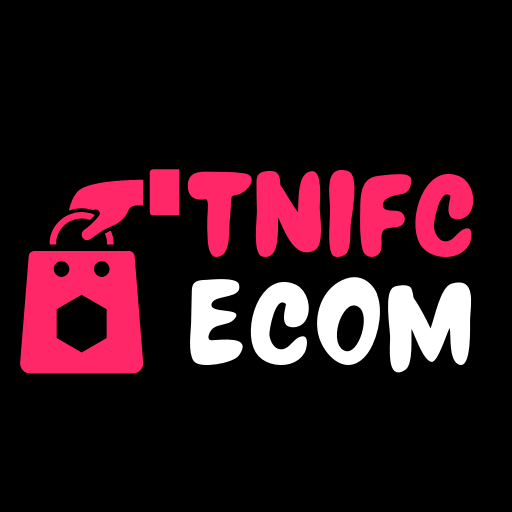Choosing the right blockchain software can be difficult. There are so many options available on the market that choosing the right one can be a daunting task, but it doesn’t have to be.
In this blog post, we’ll discuss the top factors you should consider when choosing blockchain software. In addition, we’ll explain how blockchain works and its benefits for companies.
What is Blockchain?
A blockchain is a distributed ledger technology (DLT) composed of lists of records, or blocks, linked and secured by cryptography. At its most basic, a blockchain is a digital ledger of transactions. These digital ledgers can be used when transitioning crypto, like Bitcoin.
Typically, platforms to buy cryptocurrencies have protected transactions through blockchain. For instance, launched in 2019 to increase cryptocurrency adoption, MoonPay allows users to make transactions with bitcoins. Since then, users can buy bitcoins in MoonPay and enjoy the benefits of a secure software solution.
Every time a transaction is made, it’s recorded on the blockchain. This record is then shared with all parties involved in the transaction. As a result, everyone has a complete and up-to-date record of what has happened. Because records in the blockchain are distributed and decentralized, it’s complicated to tamper with or even hack them.
Although blockchain technologies are primarily used in cryptocurrencies, they have other applications worth knowing. In fact, the potential applications of these technologies are nearly limitless. Here are three applications of blockchain in other industries.
Business and commerce: Blockchain can be used to streamline supply chains, reduce the risk of fraud and lawsuits, and speed up transactions.
Healthcare: Blockchain is utilized in healthcare to securely store patient data and simplify the process of billing and insurance claims.
Democratic elections: Blockchain allows governments to protect personal data from voters and guarantee that elections in each country are transparent.
Education: blockchain can be used to verify academic credentials and track student performance.
As technology continues to evolve, innovative blockchain applications will likely emerge.
What is blockchain software?
There is a growing demand in industries and companies for blockchain platforms, so various technological applications have emerged to deal with transactions and data protection. For example, Ethereum is one of the oldest and most recognized blockchain platforms. Currently, it has its own cryptocurrency and provides decentralization services.
Additionally, some other blockchain software platforms focus on financial operations, like digital asset exchanges and payment provider relationships. Therefore, this blockchain software can be employed by IT professionals within companies to guarantee data security during financial transactions.
Moreover, some blockchain software are focused contract management. This means that each network participant can automatically approve transactions. Since there is no longer a need to verify the transaction on every block node, this type of software saves precious time.
The benefits of using blockchain software
Blockchain technology is often hailed as a game-changing innovation that has the potential to revolutionize a wide range of industries. From finance and healthcare to supply chain management and voting systems, blockchain is being touted as a solution to a variety of challenges. Here are five benefits of blockchain software that businesses should keep in mind:
Enhanced security: Blockchain uses cryptographic algorithms to secure data, making it tamper-resistant and resistant to hacks. This makes it an ideal solution for businesses that need to store sensitive information.
Increased transparency: With blockchain, all transactions are stored in a public ledger, creating a transparent and auditable trail. This can be beneficial for businesses that need to track their supply chains or business partner interactions.
Faster transactions: Blockchain-based transactions are typically processed much faster than traditional methods, such as bank transfers. This can be useful for businesses that need to make frequent or urgent payments.
Reduced costs: Because blockchain eliminates the need for intermediaries, it can help businesses save on transaction fees. This can be particularly helpful for small businesses or startups with limited budgets or in the retail industry.
Improved efficiency: By streamlining processes and reducing the need for manual input, blockchain can help businesses boost their operational efficiency. This can free up resources that can be used for other purposes, such as product development or customer service.
8 Factors to Keep in Mind when Choosing a Blockchain Platform
When it comes to choosing a blockchain platform, there are a lot of factors to consider. Here are ten of the most important ones.
1. Security
There are a few key issues to consider when it comes to blockchain security:
- The team behind the platform. Are they experienced and reputable?
- The codebase. Is it well-maintained and well-tested?
- The community. Is it active and engaged?
Information about the developers, the codebase, and the community will give you a good sense of how secure a blockchain platform is. However, keep in mind that no platform is 100% secure. There will always be risks associated with any platform, so it’s important to do your own research and understand the risks before investing in a blockchain platform.
2. Scalability
When it comes to blockchain technology, one of the most important factors to consider is how scalable the platform is. After all, a blockchain that can only handle a small number of transactions is of limited use.
A few key components to look at when a blockchain platform’s scalability is being evaluated are
- The number of transactions that can be processed per second.
- The size of the blocks and how often they are produced.
- The capabilities of the network nodes, as they will play a vital role in processing transactions.
3. Usability
To establish how usable is a given blockchain software, you’ll need to consider:
Decentralization: A more decentralized platform will be less vulnerable to attacks and changes by any single entity. However, it may also be more difficult to manage and update.
Consensus mechanism: This determines how new blocks are added to the chain and how this can impact speed, security, and scalability.
The programming language: This will determine what kind of applications can be built on it. For example, Ethereum’s Solidity language is popular for creating smart contracts.
4. Governance
A few key issues must be considered when thinking about blockchain governance.
- Who will be responsible for managing the platform? This is important because blockchain platforms are decentralized by nature, meaning there is no central authority.
- How will decisions be made about the platform? Will there be a voting system in place?
- What rules will govern the platform? How will these rules be enforced?
- How will the platform be funded? One option is to charge users a small fee for transactions.
5. Community development
When considering the development of a blockchain platform, it is important to take into account many aspects.
The size and activity of the platform’s development community: A large, active community is often a good sign that the platform is well-supported and regularly updated. On the other hand, a small or inactive community may indicate that the platform is neglected or no longer being developed.
The nature of the updates and improvements being made to the platform: If the developers are actively working to improve performance and usability, that is usually a good sign. However, if there are few or no updates, it may indicate that the platform is no longer being developed.
6. Adoption
When it comes to blockchain technology, one of the most important factors to consider is the degree of adoption. How widely is the platform being used? Are major corporations using it, or is it just niche businesses?
The degree of adoption will have a big impact on the success of a blockchain platform. If the platform is not widely adopted, achieving critical mass and gaining the benefits of a decentralized network will be much harder.
Also, if major corporations use the platform, it’s more likely to achieve widespread adoption and become the standard in its industry. In other words, when you’re trying to decide if a blockchain platform is right for you, consider how many people are already using it.
7. Compatibility
It’s important to consider a platform’s compatibility when evaluating different blockchains. The platform should be able to integrate with other systems and software, as well as your existing infrastructure. Otherwise, you may end up with a costly and difficult-to-use system that doesn’t work well with your other technologies.
Additionally, it’s important to make sure that the platform is compatible with the devices and browsers that your users will be using. If not, they may not be able to access the system or take full advantage of its features.
8. Permissioning
When it comes to blockchain platforms, there are two main types -permissioned and permissionless. As the name suggests, permissioned platforms require users to obtain permission from a central authority before they can use the platform. In contrast, permissionless platforms can be used by anyone without the need for approval.
It’s essential to think about which type of blockchain platform would be most useful for you before selecting one. If you’re looking for a platform that anyone can use, regardless of their location or credentials, then a permissionless platform is likely your best bet.
However, if you’re trying to create a secure and private network, then a permissioned platform may be a better option.
How choose the right blockchain software for you? Consider these factors
As blockchain technology is still in its early years, it will be fascinating to see how different businesses adopt it and what new blockchain applications will be discovered.
However, if you’re thinking about implementing a blockchain solution, several factors must be considered before making your decision. We have outlined the eight factors to remember when choosing a blockchain platform for your business. Which of these factors do you consider?

